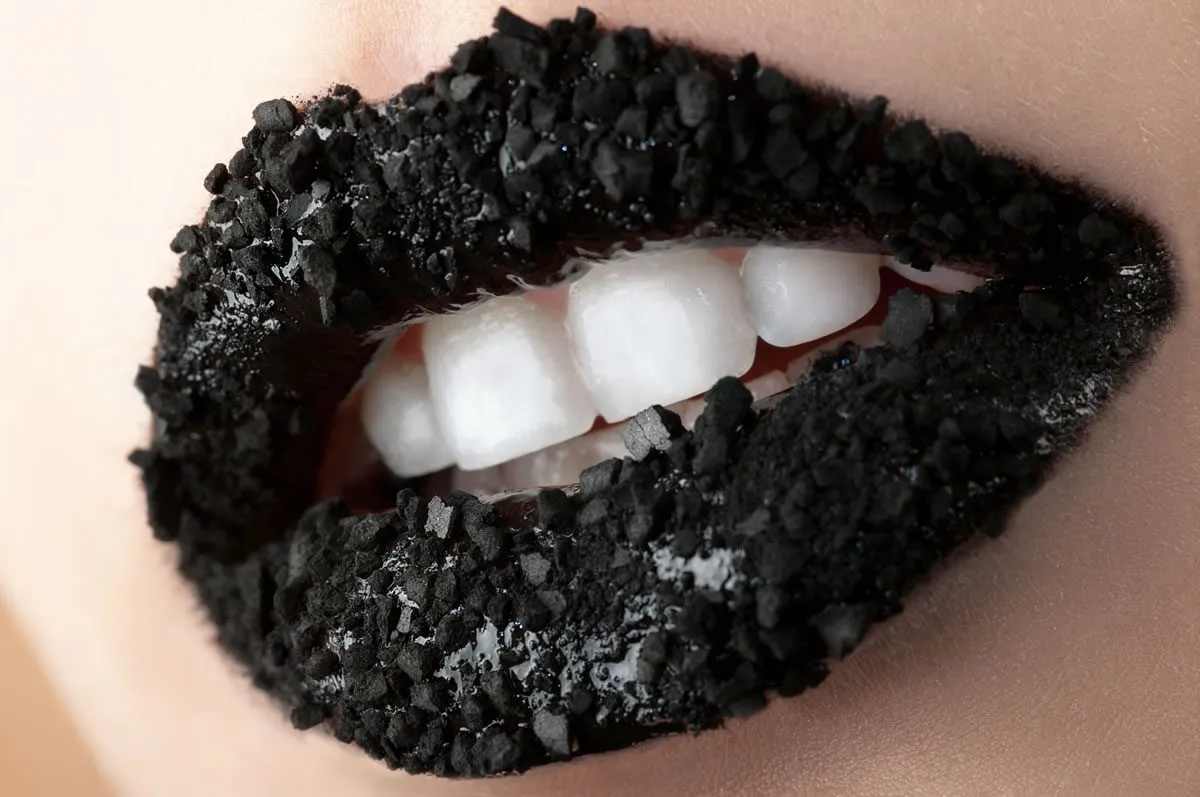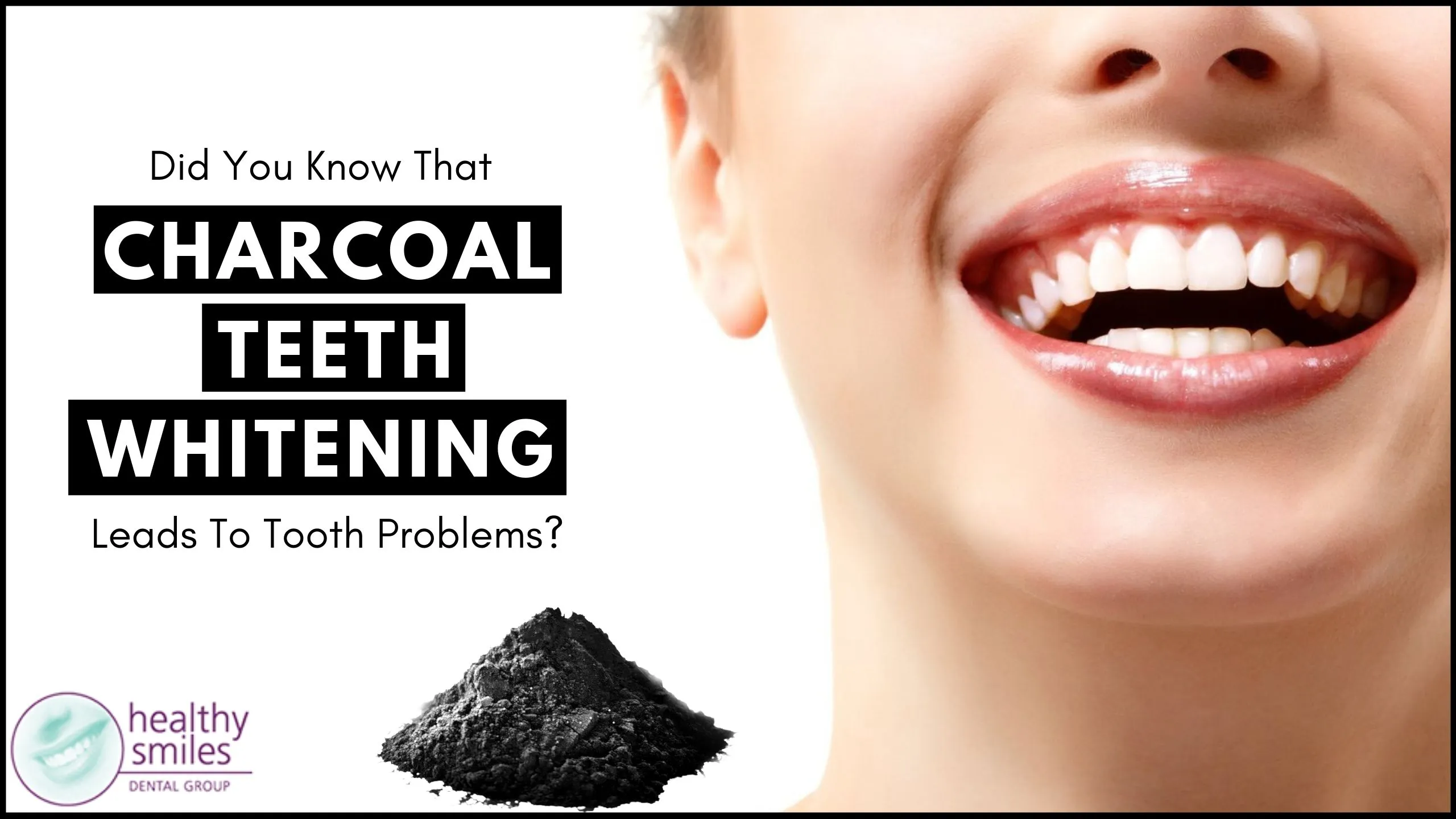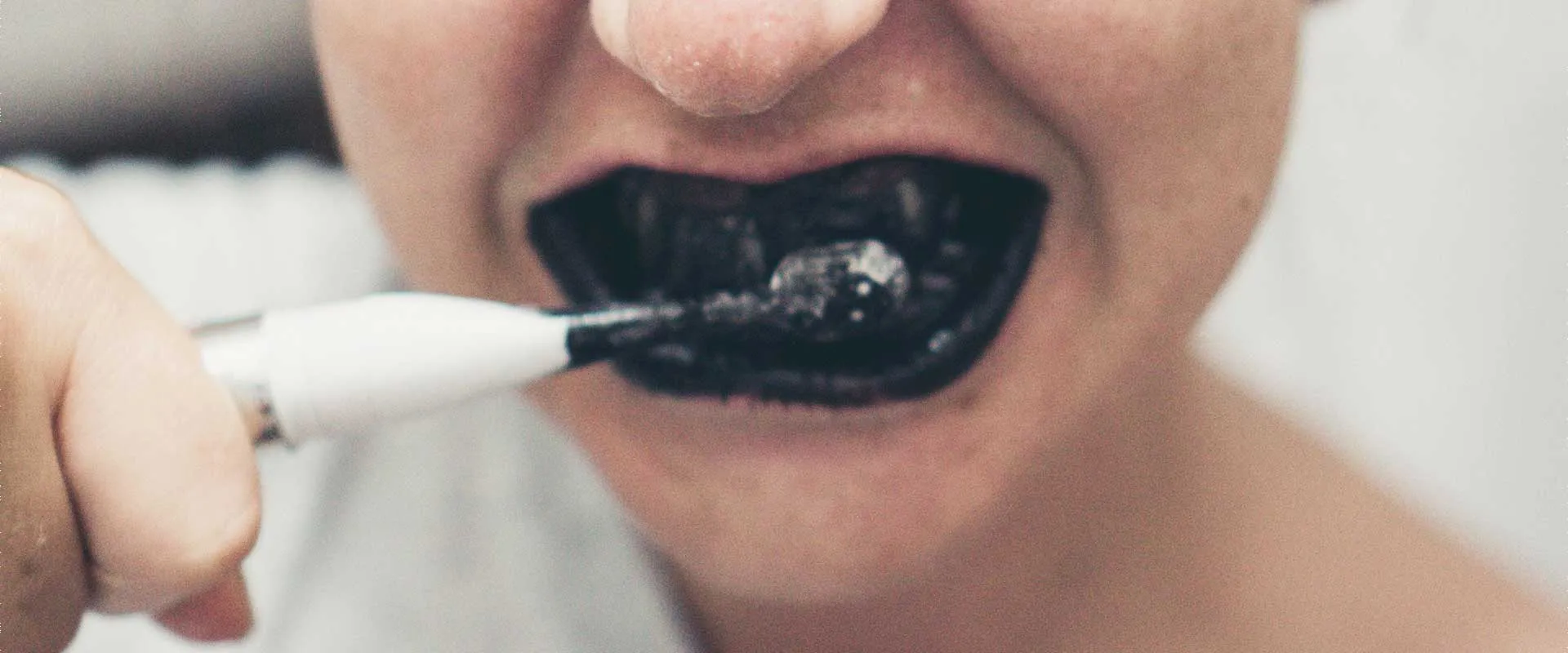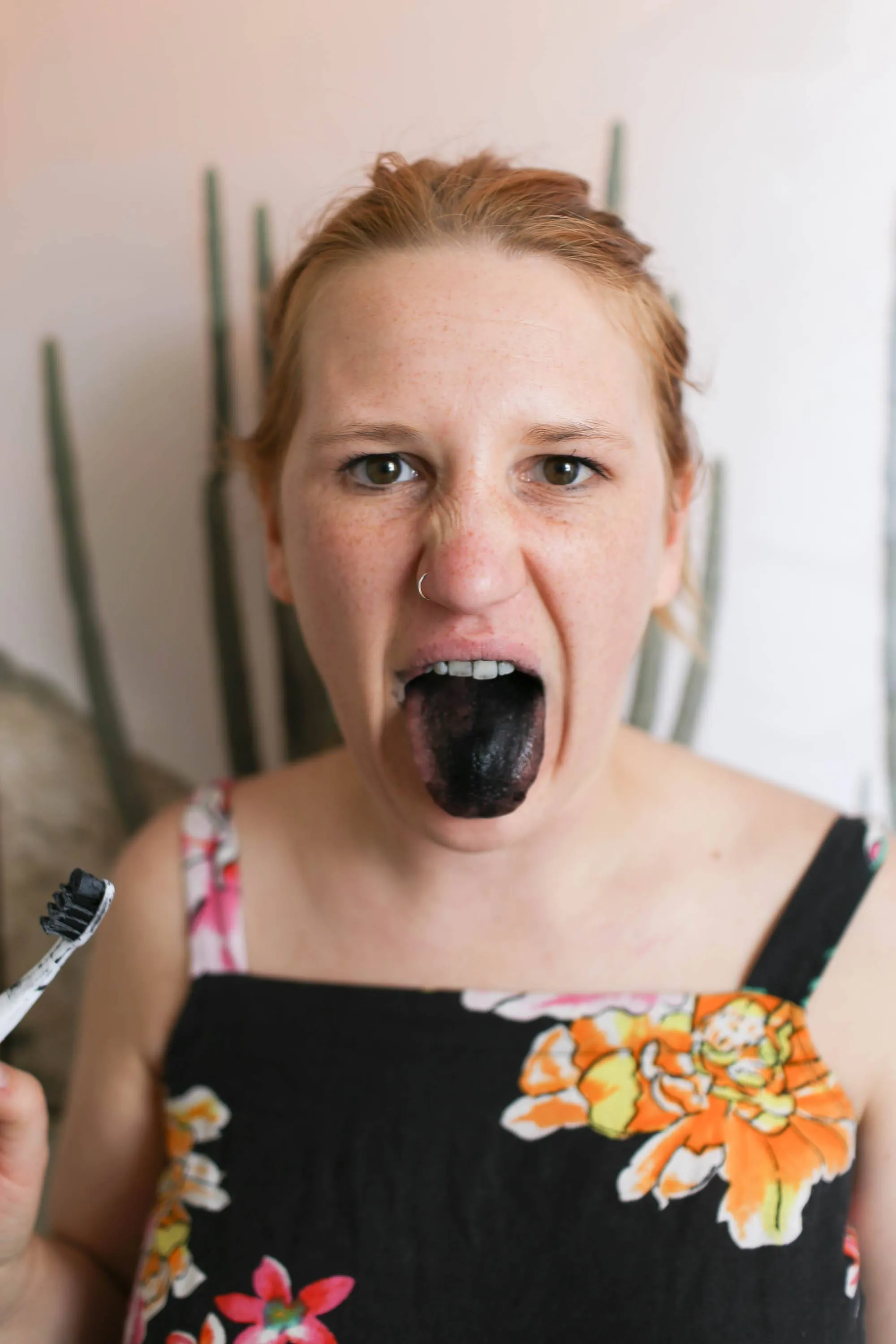What is Charcoal Teeth Whitening?
Charcoal teeth whitening has become a popular trend, promising a brighter smile through the use of activated charcoal. Marketed as a natural and effective alternative to traditional teeth whitening methods, it often comes in the form of toothpastes, powders, and even mouthwashes. The premise is simple the charcoal’s abrasive nature helps to scrub away surface stains, leading to a perception of whiter teeth. However, while the allure of a natural whitening solution is strong, it’s crucial to understand the science behind this method and to examine potential risks before incorporating it into your oral hygiene routine. The key component, activated charcoal, is produced by heating carbon-rich materials, such as coconut shells or wood, to high temperatures. This process creates a porous structure that is believed to attract and absorb impurities. This absorbent quality is what proponents claim helps to remove stains from the teeth, leading to a brighter, cleaner smile.
How Does Charcoal Whitening Work?
The mechanism behind charcoal teeth whitening is largely based on the abrasive properties of activated charcoal. The idea is that the charcoal particles act like a gentle scrub, physically removing stains and debris from the surface of the teeth. Unlike chemical whitening agents, such as those found in professional treatments or bleaching toothpastes, charcoal does not alter the intrinsic color of the tooth enamel. Instead, it focuses on removing extrinsic stains caused by things like coffee, tea, wine, and certain foods. The porous nature of the charcoal is also believed to help trap and lift away these staining particles. When you brush with charcoal, the tiny particles come into contact with the enamel surface, and through friction, they help to dislodge and remove the stain molecules. However, this abrasive action is a double-edged sword. While it may provide temporary stain removal, it can also lead to potential damage to the tooth enamel, which is the outer protective layer of the teeth.
Potential Risks of Charcoal Teeth Whitening

While charcoal teeth whitening products are widely available, it’s essential to understand the potential risks associated with their use. Numerous dental professionals and organizations have raised concerns about the long-term effects of using charcoal on your teeth. The primary concern revolves around the abrasive nature of charcoal, which can damage the enamel and lead to a variety of oral health problems. Besides the direct damage, charcoal whitening products are not regulated as strictly as other dental products, which means the concentration and quality of charcoal can vary significantly. Moreover, there isn’t enough scientific evidence to support the claims of charcoal whitening products regarding their safety and effectiveness. Before you start using these products, it’s important to weigh the perceived benefits against the potential risks and consult with your dentist or dental hygienist to make an informed decision based on your individual oral health needs.
Risk 1: Enamel Erosion
One of the most significant risks of using charcoal teeth whitening products is enamel erosion. Enamel, the hard, protective outer layer of your teeth, is not only responsible for the white appearance of your teeth but also shields them from sensitivity and decay. Activated charcoal, due to its abrasive nature, can wear away at the enamel over time. Each time you brush with charcoal, you are potentially removing tiny particles of enamel. This erosion weakens the tooth structure, making your teeth more susceptible to cavities, sensitivity, and discoloration. As the enamel thins, the underlying dentin, which is naturally more yellow, becomes more visible, leading to a less white and potentially duller appearance. The loss of enamel is irreversible, so it’s crucial to protect this vital layer through proper oral hygiene and avoid abrasive substances.
Risk 2: Increased Tooth Sensitivity
Tooth sensitivity is another potential side effect of charcoal teeth whitening. When the enamel erodes, the underlying dentin becomes exposed. Dentin contains microscopic tubules that lead directly to the nerves inside the tooth. This exposure makes your teeth more vulnerable to hot, cold, sweet, or acidic foods and drinks, resulting in sharp, short-lived pain or discomfort. The abrasive nature of charcoal can exacerbate this issue by further weakening the enamel and irritating the gums. Over time, this increased sensitivity can make it difficult to enjoy your favorite foods and beverages, and it may require additional dental treatments to manage the discomfort. If you already have sensitive teeth, using charcoal whitening products is generally not recommended, as it can worsen your symptoms and lead to more significant dental problems.
Risk 3: Gum Irritation

Charcoal teeth whitening products can also cause irritation to your gums. The abrasive particles in charcoal can be harsh on the delicate gum tissue, leading to inflammation, soreness, and even bleeding. This irritation can be exacerbated if you brush too aggressively or use a toothbrush with stiff bristles. Prolonged use of charcoal products can lead to gum recession, where the gums pull away from the teeth, exposing the root surfaces. This can increase your risk of tooth decay and sensitivity. Furthermore, if charcoal particles become lodged under the gums, they can cause further irritation and increase the risk of infections. Proper brushing technique and gentle oral hygiene practices are essential to prevent gum irritation, especially when using any teeth whitening product.
Risk 4: Ineffective Whitening
While charcoal teeth whitening products are often marketed as effective at removing stains, their ability to truly whiten teeth is questionable. As mentioned earlier, charcoal primarily removes surface stains, and it does not change the intrinsic color of the teeth. Many studies have shown that charcoal is less effective than professionally administered whitening treatments or even over-the-counter whitening products containing hydrogen peroxide or carbamide peroxide. In many cases, the perceived whitening effect from charcoal is simply due to the removal of surface stains, and it may not result in a significantly brighter smile. Furthermore, if the charcoal is not used correctly or if the underlying causes of discoloration are not addressed, the results may be minimal, and the potential risks may outweigh any perceived benefits.
Risk 5: Abrasive Nature of Charcoal
The abrasive nature of charcoal is the central element of the risks associated with its use. As we’ve discussed, the abrasive particles in charcoal can wear down the enamel, leading to a variety of oral health problems. The abrasiveness of charcoal can vary depending on the product, but it’s generally considered higher than other whitening products. Over time, this abrasion can lead to increased sensitivity, cavities, and even tooth loss. Furthermore, the abrasive action can disrupt the natural protective barrier of the enamel, making your teeth more susceptible to staining and discoloration. Therefore, understanding the potential for abrasiveness is critical when considering charcoal teeth whitening. Always consult with your dentist or dental hygienist to assess your enamel health and determine whether charcoal products are suitable for your teeth.
Safer Alternatives to Charcoal Whitening

If you’re seeking a brighter smile, there are many safer and more effective alternatives to charcoal teeth whitening. For example, over-the-counter whitening products containing hydrogen peroxide or carbamide peroxide can effectively remove stains and lighten the intrinsic color of your teeth. These products, often available in the form of whitening strips, gels, or toothpastes, are usually gentler on your enamel than charcoal. Another option is to consult with your dentist about professional teeth whitening treatments. These treatments use stronger bleaching agents under professional supervision, which can deliver more dramatic results. Regular professional cleanings can also help remove surface stains and maintain a healthy, bright smile. Finally, practicing good oral hygiene, including brushing twice a day with fluoride toothpaste, flossing daily, and visiting your dentist for regular check-ups and cleanings, is the best way to maintain a healthy and attractive smile.
Professional Teeth Whitening Options
For those seeking more dramatic and long-lasting results, professional teeth whitening is an excellent option. Dentists offer various whitening treatments, including in-office bleaching and custom-fitted whitening trays for at-home use. In-office treatments typically involve a higher concentration of bleaching agents, which can lighten teeth several shades in a single session. Your dentist can also monitor the process and ensure that your gums and teeth are protected. Custom-fitted whitening trays are a more gradual approach, allowing you to whiten your teeth at home using a prescription-strength whitening gel. Your dentist will take impressions of your teeth to create trays that fit perfectly, ensuring that the gel comes into contact with the teeth. Professional whitening treatments are generally safe and effective when performed under the supervision of a dental professional, and they provide a more controlled and predictable whitening experience than over-the-counter or DIY methods.
Daily Oral Hygiene Practices
Regardless of your teeth whitening choices, maintaining excellent daily oral hygiene practices is crucial for a healthy and bright smile. Brushing your teeth at least twice a day with fluoride toothpaste is fundamental. Make sure to brush for two minutes each time, covering all surfaces of your teeth. Flossing daily is also essential to remove plaque and food particles from between your teeth and along the gum line. This helps to prevent cavities, gum disease, and bad breath. Consider using an antibacterial mouthwash to further reduce plaque and bacteria. Additionally, limit your consumption of sugary and acidic foods and drinks, as they can contribute to tooth decay and erosion. Regular dental check-ups and cleanings are also essential to identify and address any oral health issues early on. By following these practices, you can maintain a healthy, bright smile and reduce the need for aggressive whitening treatments.
Conclusion

In conclusion, while charcoal teeth whitening has gained popularity as a natural method, it’s essential to be aware of the potential risks. The abrasive nature of charcoal can lead to enamel erosion, increased tooth sensitivity, and gum irritation. Furthermore, the effectiveness of charcoal whitening is often questionable, and safer alternatives and professional treatments are available. Prioritizing your oral health is crucial. Always consult with your dentist before trying any teeth whitening method to make sure it’s suitable for your teeth. By making informed decisions and practicing good oral hygiene, you can achieve a healthy and beautiful smile without compromising your dental health. Focus on protecting your enamel and following the advice of your dental professional to ensure long-term oral health and a confident smile.
